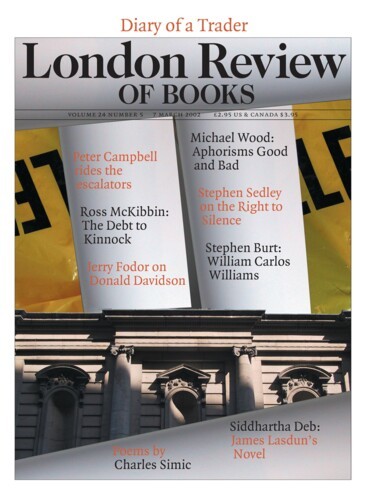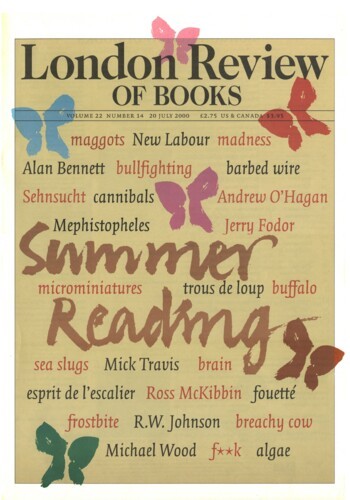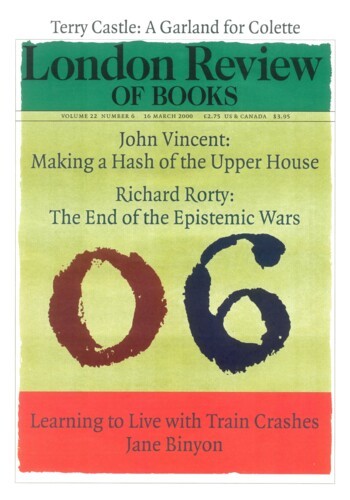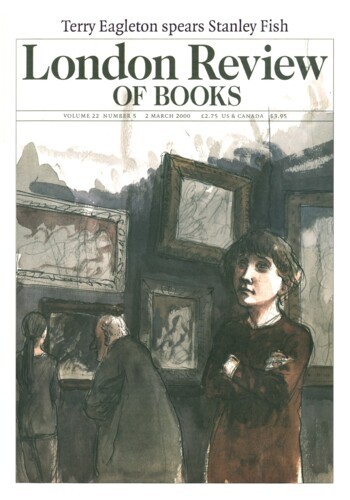Chicory and Daisies: William Carlos Williams
Stephanie Burt, 7 March 2002
‘The painters have paid too much attention to the ism and not enough to the painting,’ William Carlos Williams wrote in 1928. Something similar could be said about Williams’s own critics: since his death in 1963, attention to his theories and to his life has been getting in the way of his poems. With Williams, more than the usual number of isms and caricatures need to be...




